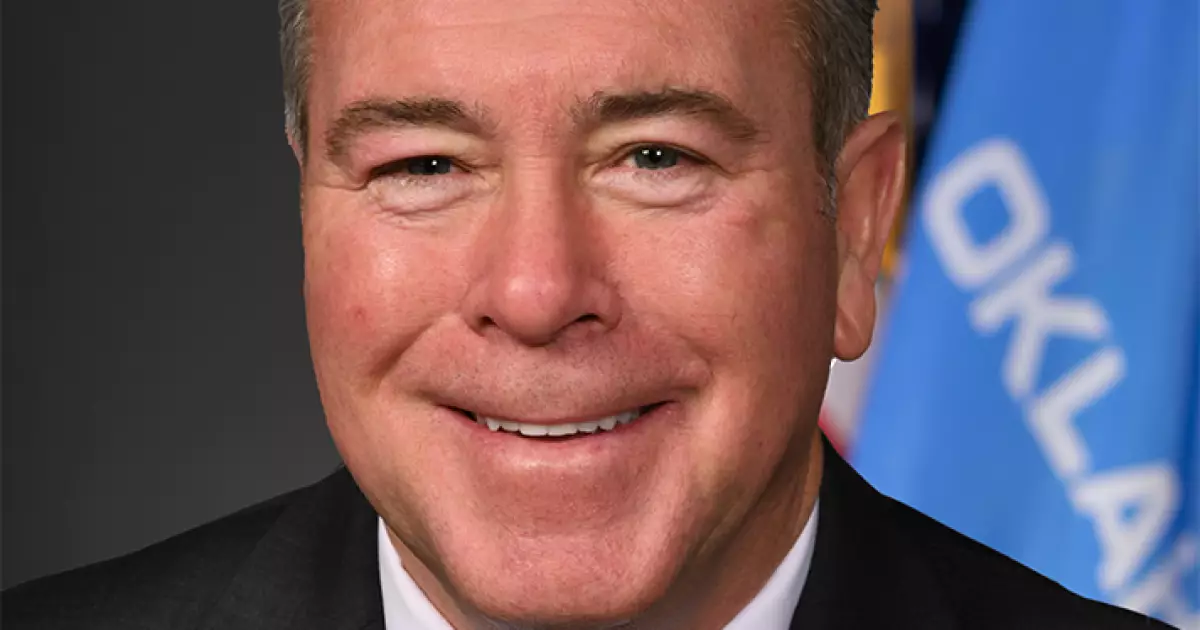The ongoing power struggle between the Oklahoma Republican state treasurer and attorney general is a cautionary tale of governance gone awry. At the heart of this conflict lies not just a feud, but a fundamental challenge to the very framework of state authority. When elected officials prioritize personal ambition over cohesive governance, the impact is both felt and seen across the state. As this spat escalates, it underscores how ideological legacies of the past can easily become weapons in political gamesmanship, detracting from essential issues facing the constituents.
The threats posed by this feud extend beyond mere personal animosities; they provoke questions about the accountability of officials who should be collaboratively working for the common good. The ideological battle surrounding the Energy Discrimination Elimination Act of 2022 exemplifies this disturbing trend as state officials engage in a public relations war that distracts from the pressing needs of Oklahoma’s environment and economy.
Constitutional Authority and Mismanagement
Treasurer Todd Russ recently accused Attorney General Gentner Drummond of “crossing constitutional lanes,” suggesting a crackdown on the checks and balances that define this democratic framework. Russ argues that Drummond’s actions signify a troubling consolidation of power that undermines the treasurer’s constitutionally endorsed duties. Such suspicions merit attention; yet, one cannot ignore that the root cause is often a thirst for authority rather than prudent governance.
Drummond’s assertion that the treasurer’s ambitions to “outsource Oklahoma’s sovereignty to New York” just adds more fuel to an already volatile fire. This rhetoric, while politically potent, risks derailing meaningful discourse on financial governance in Oklahoma. It seems evident that both officials would benefit from stepping back and reflecting on the appropriateness of using fiery language as a substitute for policy-based engagement.
Yet, while Russ critiques Drummond’s methods, it can’t be overlooked that Russ has also entered the fray with dubious intentions. Accusations regarding Drummond’s alleged connections to BlackRock signal desperation more than they illustrate genuine ethical concerns. In that context, the stridency of political motives overshadows any semblance of professionalism.
Environmental Consequences in a Politically Polarized Climate
Far beyond the squabbles of personal agendas, the implications of the feud reverberate through Oklahoma’s environmental policies. The Energy Discrimination Elimination Act, aimed ostensibly at protecting the fossil fuel industry, introduces a series of complications for state contracts involving financial institutions. The law’s punitive stance against firms identifying themselves with ESG (Environmental, Social, and Governance) criteria is a clear signal of Oklahoma’s intent to prioritize fossil fuels, leaving behind a burgeoning green economy ripe with potential.
Despite the bravado associated with the bill, the reality is that such legislative maneuvers alienate Oklahoma from financial capital adept to navigating current global standards. By blacklisting finance giants like BlackRock, the potential for economic growth diminishes, further exacerbated by a decline in investor confidence. To pit the state’s fiscal health against environmental stewardship is neither beneficial nor sustainable in the long term.
The Illusions of Authority and Effectiveness
Perhaps the most alarming element of this quarrel is the challenge it poses to fiduciary responsibility. Russ’ concern that Drummond’s actions could disrupt financial stewardship illustrates the disconnect between principle and practice. When discussions blur into accusations and threats, the net effect is often mismanagement, jeopardizing state funds and diminishing trust among citizens who look to their leaders for responsible governance.
Drummond’s notable rhetoric around “protecting Oklahoma’s interests” has a ring of sincerity; however, public interest is best served not via standoffs but through cooperative problem-solving. The pressure rises when political elites become entangled in pursuits of personal legacy rather than recognizing the stakes of their decision-making on day-to-day governance and fiscal responsibility.
As Oklahoma approaches the next elections, one can only hope that these leaders will prioritize the imperative of collaboration over conflict. Without a shift from this mentality, not only are the responsibilities of those elected compromised, but the future of the very state they govern could also be at stake.

